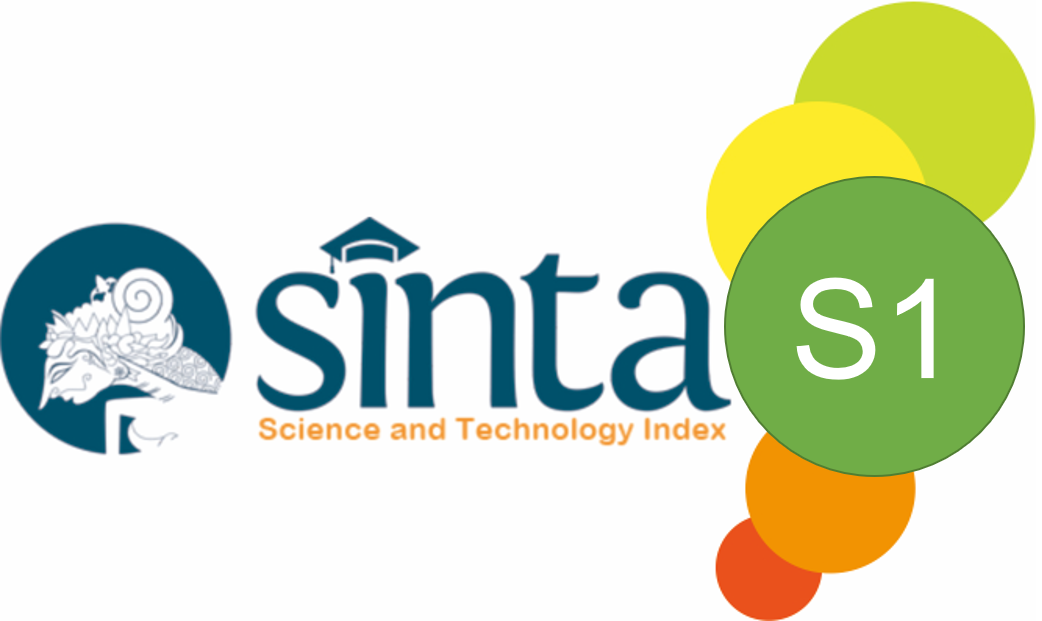Level of Use and Satisfaction of E-Commerce Customers in Covid-19 Pandemic Period: An Information System Success Model (ISSM) Approach
Abstract
Pandemic outbreaks of COVID-19 have made customers take drastic steps to help world governments to prevent further spread, one of which is by social distancing. This policy made buying and selling online a convenient option to fulfill the needs for goods and/or services. The purpose of this study was to determine the level of use and satisfaction of e-commerce customers in the COVID-19 pandemic period with the information system success model (ISSM) approach that was formed through system quality, information quality, and service quality. The research method used a quantitative approach by distributing questionnaires to respondents of 206 e-commerce costumers. Data analysis used Structural Equation Modeling (SEM) where the results confirm that system quality, information quality, service quality, affected the level of use and user satisfaction of e-commerce customers. E-commerce companies are recommended to maintain, even improve system quality and information quality because information that is less interesting, less relevant, and difficult to understand results in low information quality, which in turn, can reduce the level of use and customer satisfaction.
Keywords
Full Text:
PDFReferences
Abdu’a, A. R., & Wasiyanti, S. (2019). Pengukuran kualitas e-commerce Shopee terhadap kepuasan pengguna menggunakan metode webqual 4.0. Paradigma-Jurnal Komputer dan Informatika, 21(2), 143-148.
Angelina, R. J., Hermawan, A., & Suroso, A. I. (2019). Analyzing e-commerce success using DeLone and McLean model. Journal of Information Systems Engineering and Business Intelligence, 5(2), 156-162.
Buttle, F., & Maklan, S. (2019). Customer relationship management: concepts and technologies. Routledge.
Delone, W. H., & McLean, E. R. (2003). The DeLone and McLean model of information systems success: a ten-year update. Journal of Management Information Systems, 19(4), 9-30.
Dwivedi, Y. K., Kapoor, K. K., Williams, M. D., & Williams, J. (2013). RFID systems in libraries: An empirical examination of factors affecting system use and user satisfaction. International Journal of Information Management, 33(2), 367-377.
Dirgantari, P. D., Nandiyanto, A. B. D., & Machmud, A. (2019). Development strategy of earthworms nanoparticle products using ball mill methods in Indonesia. Journal of Engineering Science and Technology, 14(2), 589-598.
Ghozali, I. (2014). Model persamaan struktural konsep dan aplikasi dengan program AMOS 22.0 update bayesian SEM. Semarang: Badan Penerbit Universitas Diponegoro.
Goić, M., Jerath, K., & Srinivasan, K. (2011). Cross-market discounts. Marketing Science, 30(1), 134-148.
Gu, J. W., & Jung, H. W. (2013). The effects of IS resources, capabilities, and qualities on organizational performance: An integrated approach. Information and Management, 50(2-3), 87-97.
Hartono, E., Li, X., Na, K. S., & Simpson, J. T. (2010). The role of the quality of shared information in interorganizational systems use. International Journal of Information Management, 30(5), 399-407.
https://datareportal.com/reports/digital-2019-ecommerce-in-indonesia, retrieved on April 20, 2020.
https://iprice.co.id/insights/mapofecommerce/, retrieved on April 30, 2020.
https://nasional.kompas.com/read/2020/04/25/15472271/update-25-april-kasus-covid-19-di-indonesia-mencapai-8607, retrieved April 20, 2020
Kallweit, K., Spreer, P., & Toporowski, W. (2014). Why do customers use self-service information technologies in retail? The mediating effect of perceived service quality. Journal of Retailing and Consumer Services, 21(3), 268-276.
Kemp, S. & Moey, S. (2019). Digital 2019 Spotlight: Ecommerce In Indonesia. https://datareportal.com/reports/digital-2019-ecommerce-in-indonesia, retrieved on April 20, 2020.
Kotler, P., & Keller, K. L. (2016). Marketing management (15th global ed.). England: Pearson.
Laudon, K. C., & Laudon, J. P. (2015). Management information systems (p. 143). Upper Saddle River: Pearson.
Meidita, Y., Suprapto, & Rokhmawati, R. I. (2016). Pengaruh kualitas layanan terhadap kepuasan, kepercayaan dan loyalitas pelanggan pada e-commerce (Studi kasus: Berrybenka). Jurnal Pengembangan Teknologi Informasi dan Ilmu Komputer, 2(11), 5682–5690.
Mulyapradana, A., Anjarini, A. D., & Harnoto, H. (2020). Pengaruh Kualitas Pelayanan Terhadap Kepuasan Pelanggan di PT. Tempo Cabang Tegal. Jurnal Ekonomi and Ekonomi Syariah, 3(1), 26-38.
Rahayu, F. S., Apriliyanto, R., & Putro, Y. S. P. W. (2018). Analisis Kesuksesan Sistem Informasi Kemahasiswaan (SIKMA) dengan Pendekatan Model DeLone dan McLean. Indonesian Journal of Information Systems, 1(1), 34-46.
Rohm, A. J., & Swaminathan, V. (2004). A typology of online shoppers based on shopping motivations. Journal of Business Research, 57(7), 748-757.
Santos-Vijande, M. L., del Río-Lanza, A. B., Suárez-Álvarez, L., & Díaz-Martín, A. M. (2013). The brand management system and service firm competitiveness. Journal of Business Research, 66(2), 148-157.
Saputro, P. H., Budiyanto, D., & Santoso, J. (2015). Model DeLone and McLean untuk mengukur kesuksesan e-government Kota Pekalongan. Scientific Journal of Informatics, 2(1), 1-8.
Sultono, S., Seminar, K. B., & Erizal, E. (2016). Analysis on academic information system quality toward user satisfaction. Bisnis and Birokrasi Journal, 22(2), 122-129.
Surawiguna, T. J. (2010). e-commerce in information age. Jurusan Sistem Informasi STMIK Amikom. Jogjakarta.
Susnita, T. A. (2020). Pengaruh kualitas pelayanan dan kepuasan pelanggan terhadap loyalitas pelanggan pada hotel Libra kadipaten Kabupaten Majalengka. Juripol, 3(1), 73-84.
Veranika, P., & Murtini, H. (2017). The influence of information and system quality towards SIREMUN. Accounting Analysis Journal, 6(3), 468-477.
Wibowo, W. A. (2013). Pengaruh system quality, information quality, dan service quality terhadap user satisfaction website Lion Airlines dan Sriwijaya Airlines. Jurnal Strategi Pemasaran, 1(1), 1-22.
Widiaty, I., Riza, L. S., Abdullah, A. G., & Mubaroq, S. R. (2020). Multiplatform application technology–based heutagogy on learning batik: A curriculum development framework. Indonesian Journal of Science and Technology, 5(1), 45-61.
Zeithaml, V. A., Berry, L. L., & Parasuraman, A. (1993). The nature and determinants of customer expectations of service. Journal of the Academy of Marketing Science, 21(1), 1-12.
DOI: https://doi.org/10.17509/ijost.v5i2.24617
Refbacks
- There are currently no refbacks.
Copyright (c) 2020 Indonesian Journal of Science and Technology

This work is licensed under a Creative Commons Attribution-ShareAlike 4.0 International License.
Indonesian Journal of Science and Technology is published by UPI.
View My Stats





















